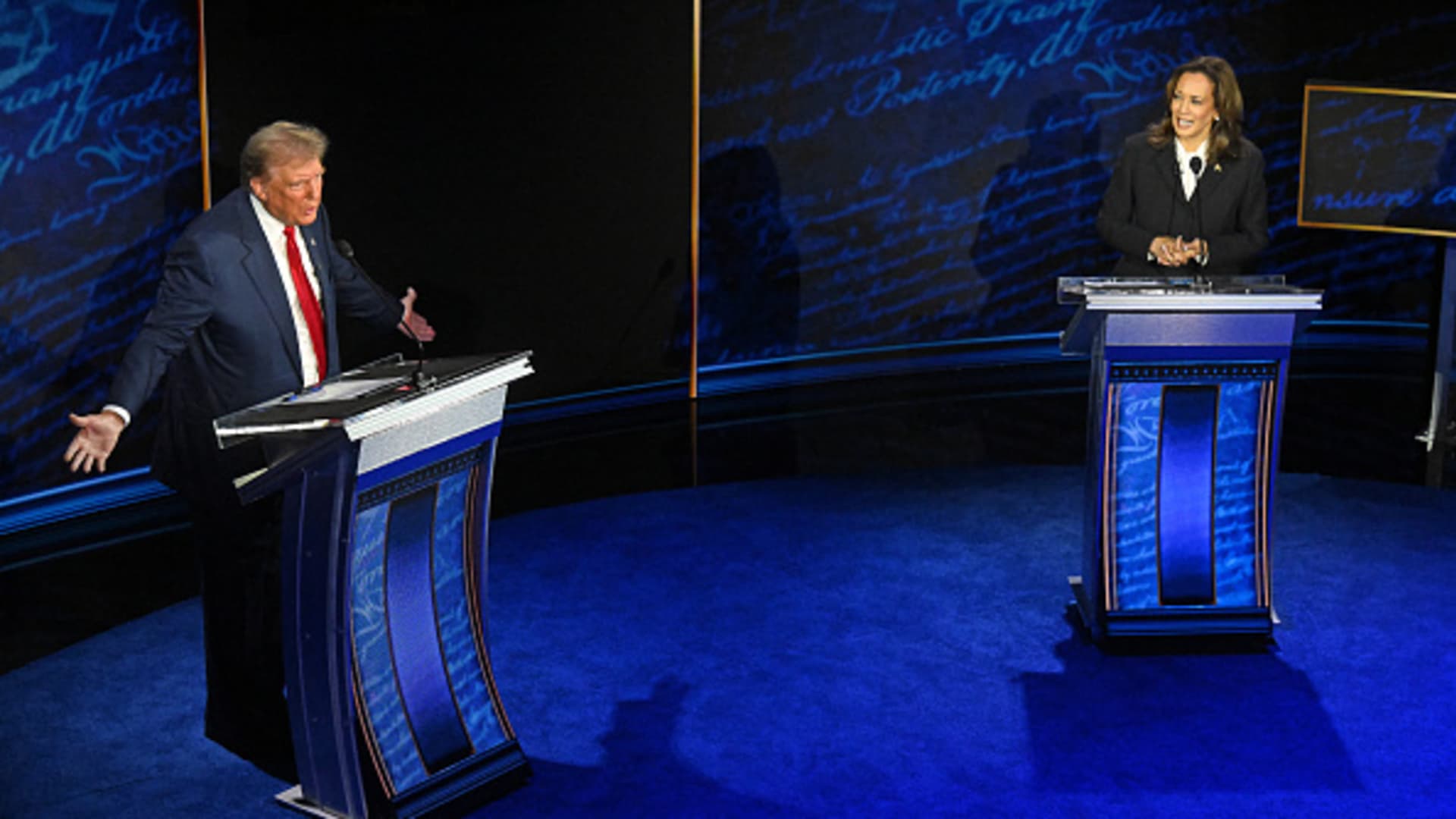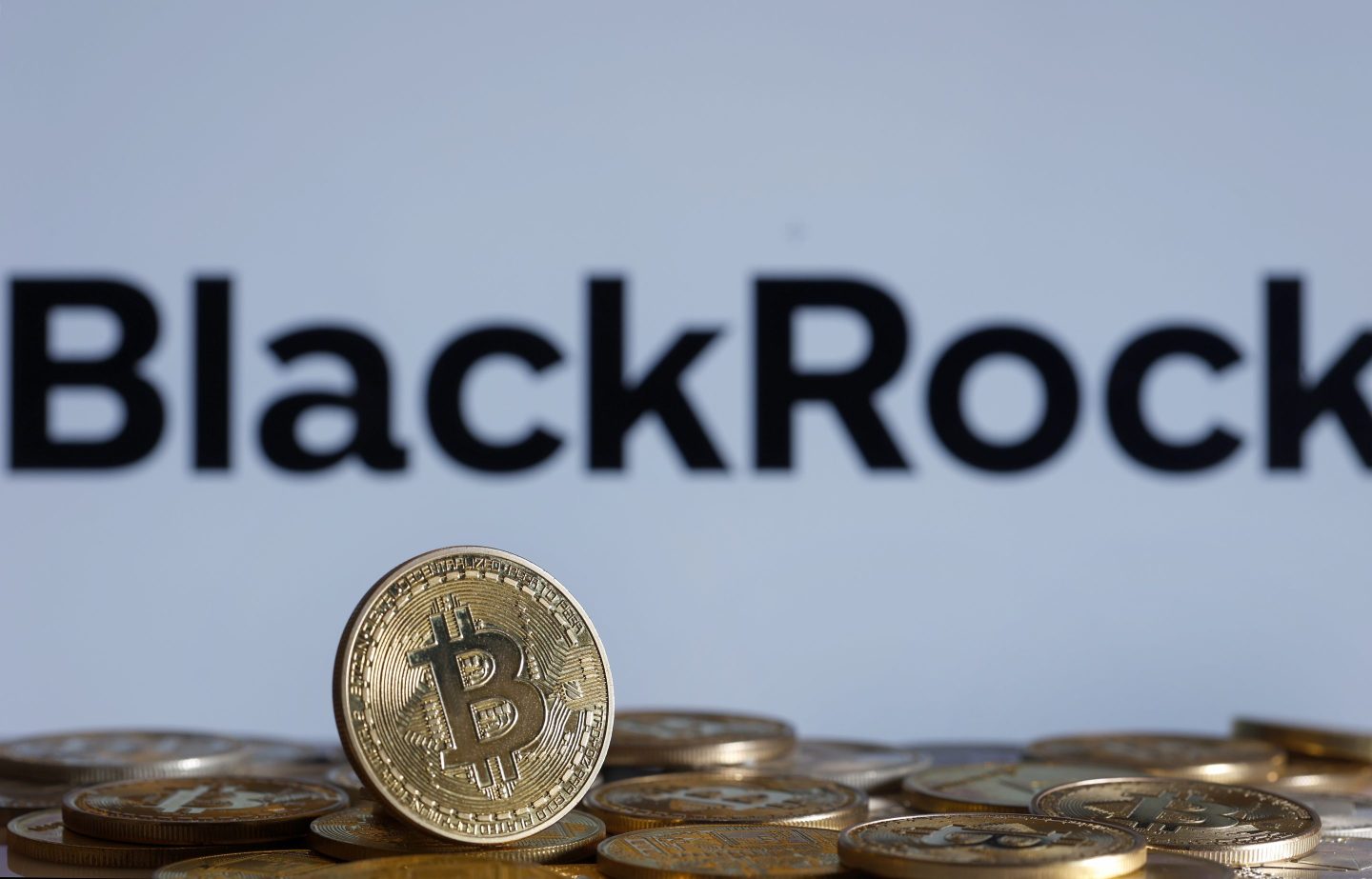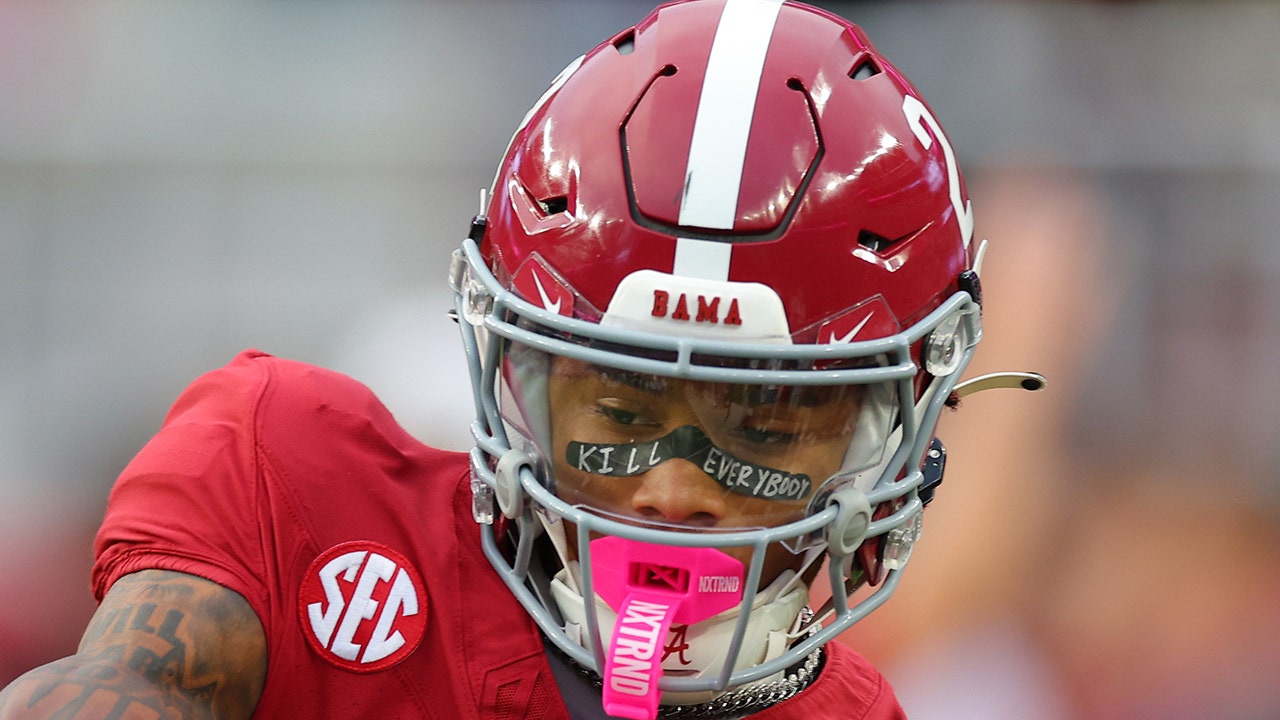The economic woes from inflation look to have accelerated a shift of Latino voters toward Republicans, cutting in half a Democratic lead with a critical voting group in the lead up to a tight presidential election, according to an NBC/CNBC/Telemundo survey.
The survey of 1,000 Latino likely voters found the Democratic presidential candidate, Vice President Kamala Harris, leading the Republican candidate, former President Donald Trump, by 54% to 40%. That’s considerably less than the 36-point lead that President Joe Biden enjoyed in the run-up to the 2020 election. Biden’s advantage was almost half again the 50-point lead that Hillary Clinton held over Trump in 2016, suggesting a longer-term trend that shows Latinos in the Democratic camp but in diminishing numbers.
“There’s an intensity around these issues that is quite striking,” said Aileen Cardona-Arroyo, senior vice president at Hart Research, the Democratic pollsters for the survey. “The cost of living and inflation is really what is informing a lot of the way that people are thinking about economy and the economic future of the country.”
The survey was conducted from Sept. 15 through Sept. 23 and has a margin of error of +/- 3.1%.
Harris’s 14-point lead is the narrowest margin for a Democratic candidate among surveyed Latino voters in at least the past four elections, going back to 2012. The survey also found a 54% to 42% preference for Democratic control of Congress among Latinos, the smallest Democratic lead since 2012. That indicates a shift that could be more far-reaching than just the presidential race.
“The data in this poll is not a flash in the pan,” said Micah Roberts, partner with Public Opinion Strategies, who served as the Republican pollster for the survey. “It’s a continuation of a precipitous and massive shift in the political identity of one of the most important voter groups in America.”
Harris has strong leads among respondents when it comes to issues of character: by two-to-one, surveyed Latino voters think she will do a better job addressing their needs; 48% gave Harris a positive favorability rating compared to 32% for Trump; and she led Trump by around 20 points or more on the questions of who has the right temperament to be president and who is more trustworthy, competent and effective.
But the survey shows inflation and the cost of living, along with jobs and the economy, as the top two issues for Latinos, mirroring surveys of the broader population. Trump leads Harris on both, with a 46% to 37% lead over Harris on who is better to deal with inflation and 45% to 41% edge on dealing with the economy.
Harris has a 39-point advantage on who would be best for treating immigrants humanely and protecting immigrant rights, a 32-point lead on the abortion issue and even a 5-point edge on crime. Harris’ dominance on those issues highlights the importance of the economy and inflation in explaining Trump’s gains among Latinos in this poll compared to 2020.
Harris’s lead over Trump narrowed substantially with younger voters aged 18-34, who prefer the Democratic candidate by only 10 points compared with 44 points in 2020. Trump and Harris are tied among Latino men 47/47, a group that Biden led by 17 points in the polling lead up to the 2020 election. The Democratic advantage among Latino women is a substantial 26 points, but that’s about half the lead Biden had in 2020.
All of these groups rate the economy poorly, with Latino voters overall about as downbeat on the economy as the rest of the country. Just 23% see the current state of the economy as excellent or good while 77% rate the economy fair or poor, nearly the same as the results for all voters in the CNBC All-America Economic Survey from August. That’s a potential problem for Democrats because Latinos have been fairly reliable Democratic voters and don’t look at all like Democrats on the issue of the economy. In the CNBC survey, Democrats rated the economy 42% excellent or good, compared to 23% for Latinos in this poll. 65% of Latinos say their wages are falling behind inflation. While that’s about equal to the rest of the population, it stands 11 points higher than in the NBC 2022 Latino survey. Younger Latino women and adults say they have been hit hardest by higher prices.
Among those who say they are falling behind, 48% say the biggest impact has been in the cost of groceries, 34% single out rent and mortgage and 10% highlight the rising cost of healthcare.
While Latinos have widely differing views on immigration, it only rated as the fourth most important area of concern, well behind inflation, jobs and even threats to democracy. The survey found 62% of respondents believe immigration helps the country more than it hurts, with 35% saying the opposite. It’s the smallest positive showing for immigration among Latinos since at least 2006.
Trump leads Harris 47-34 on the issue of who is better at securing the border and controlling immigration, according to the survey.
A modest 52% majority of Latino voters said it’s more important to provide a pathway to citizenship for immigrants and prevent discrimination, compared to 47% who say it’s more important to secure the border and stop immigrants from entering illegally.
Still, 91% support creating a way for undocumented spouses to gain citizenship, and 87% support a pathway for citizenship for undocumented immigrants brought here as children.
Here is a demographic profile of Latino voters from the NBC/CNBC/Telemundo survey:
- 52% say they primarily speak English, while the remainder say they speak only Spanish or both.
- 56% trace their family’s heritage to Mexico; 16% to Puerto Rico; 11% to Spain; 5% to Cuba; 5% to the Dominican Republic.
- 49% identify as a Democrat, 37% Republican, 13% independent.
- 32% say they’re liberal; 37% are moderate; 29% are conservative.
- 49% are Catholic, 21% are Protestant, 28% are other/none.















